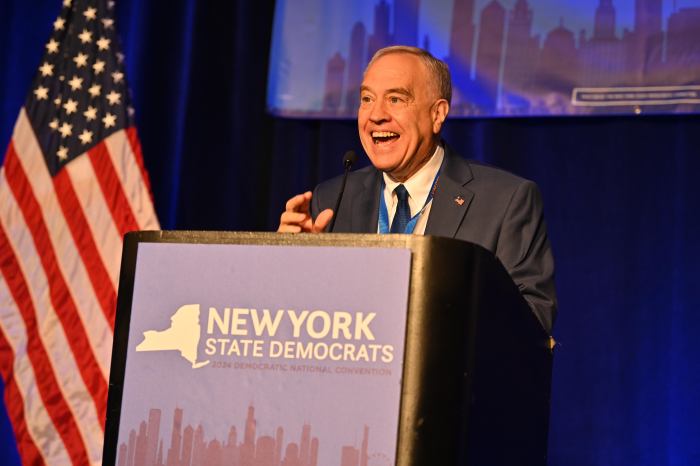Antigua
The Antigua and Barbuda government is considering recalling all diplomatic passports.
It has come in the wake of the one of Antigua and Barbuda’s economic adviser and former diplomatic holder who is reported to have been arrested in China.
Speaking with Chinese billionaire Ziao Jinahua at a function at the Office of the Prime Minister, Prime Minister Gaston Browne said he is prepared to recall all diplomatic passports.
Browne commenting on the arrest of Antigua and Barbuda economic advisor and former diplomatic passport holder Chinese billionaire Xiao Jianhua, who is reported to be in custody on mainland China said from all indications, he never utilized his appointment as an envoy to commit any crime.
He said it is still unclear as to whether it was an abduction or arrest.
Browne said if he is eventually charged with any wrongdoing then action involves revocation of his status of economic envoy.
Cayman Islands
Cayman Islands Premier Alden McLaughlin has made some immigration changes that will impact visitors to Cayman and Caymanian travelers.
He said his government was close to finalizing an agreement for immigration pre-clearance at Miami International Airport for eligible passengers coming to the Cayman.
He also revealed that Chinese visitors with a valid US, Canadian or British visa would no longer require a Cayman visa and the same arrangement will also apply to Jamaicans.
The new changes were confined to immigration being made to ease entry for tourists and encourage business visitors.
He said the agreement with US would “enhance the experience of passengers” because they would avoid “local immigration lines”, allowing them to go straight to Customs baggage claim.
The prime minister said Cabinet has agreed to amend the Immigration Regulations to exempt nationals of the People’s Republic of China from the requirement to possess visitors’ visa for the Cayman Islands to a stay of up to 30 days.
This, he said, will apply where the person possesses a valid unexpired visa for Canada, United States or the United Kingdom when they arrive directly from the country for which they hold the visa.
Grenada
Grenadian authorities are cracking down on people who breed dangerous dogs warning them that they could be jailed for six months as well as having to pay a maximum fine of EC$10,000.
Environmental Health Officer Kenny James said the dangerous dogs’ legislation came into effect since 2002 and a clause was included to stop the breeding of dangerous dogs in Grenada.
He said there is a proliferation of young dangerous dogs among homeowners.
James said there are persons who are breeding dangerous dogs and no individual or entity has been granted a license to breed dangerous dogs.
Under the law, a person convicted of illegally breeding dangerous dogs faces a maximum fine of EC$10,000 and or serve six months in jail.
Recently the police and vector control workers from the Ministry of Health conducted a joint operation in the south of the island, cracking down on owners of dangerous dogs.
They seized eight pit bulls. The owners have been given time to meet the necessary conditions for having such dogs.
Guyana
Guyana will be presenting the Draft CARICOM Arrest Warrant Treaty for ratification at the 28th intersessional meeting at the Heads of Government conference when they meet in Georgetown later this month.
Minister of State Joseph Harmon told a Cabinet press briefing that the adoption of the treaty will simplify the procedures by which fugitives from justice are returned to participating member states to face criminal prosecution or serve judicial sentences.
The treaty is one of the regional security instruments that was formulated to enhance cooperation between member states in the fight against crime and to reduce the complexity, cost and delays in the existing extradition arrangements inherent in the region.
Guyana will also be recommending the signing of a draft agreement to establish the Caribbean Center for Renewable Energy Efficiency (CCREE) at the meeting.
The minister said this agreement is geared at addressing several areas including energy access for production use and climate change mitigation.
Guyana’s green agenda will benefit substantially from this agreement by way of technical and financial support, Harmon said.
Jamaica
Jamaica police have seized more than 100 illegal firearms since the start of the year.
This was revealed by Assistant Commissioner of Police Clifford Chambers who said the seizure is part of sustained efforts by the Jamaica Constabulary Force (JFC) to reduce criminal activities in the country.
Last year, 689 illegal firearms were seized with close to 10,000 assorted rounds of ammunition, which resulted in 1,436 persons being arrested for breaches of the Firearms Act.
The top cop said illegal firearms, none of which are manufactured in Jamaica, were featured in over 80 percent of murders committed and the security forces continue to recover illegal firearms in huge numbers.
Chambers said the Ministry of National Security continues to work to stem other illegal activities in the country, including criminal organizations (gangs), whose numbers were reduced from 262 in 2015, to 258 in 2016.
St. Lucia
Consumers in St. Lucia will benefit from a cut in Value Added Tax (VAT) from 15 percent to 12.5 percent, which took effect this month.
This is in keeping with a promise made during the June 6, 2016 General Election campaign.
Prime Minister Allen Chastanet said the move is not only intended to ease the financial strain on households and businesses but it will result in positive dividends for the economy.
He dismissed concerns that the government would lose significant revenue because if the reduced tax.
The prime minister insisted that taxation was not “an entitlement of government” and hinted that St. Lucians could also expect more tax ease.
Chastanet said Government would conduct a compete assessment of personal income tax and corporate tax.
The former Kenny Anthony Administration had introduced VAT in October 2012.
St. Kitts
The St. Kitts and Nevis police will soon be using new technology equipment, including, drones as the government seeks to consolidate gains in 2016 in reducing crime.
At a recent press conference Prime Minister and Minister of National Security, Dr. Timothy Harris said a new mobile patrol unit will be deployed in the federation, bringing the number to two. Several drones will also be deployed to increase surveillance in order to detect and deter crime.
The closed circuit television (CCT) program will also be enhanced with systems in the capital cities of Basseterre and Charlestown, as well as in Frigate Bay and St. Peter’s which are being expanded.
Harris said the investment in the CCT program will cost EC$5 million, to be funded by the Taiwanese government, while the price for the mobile patrol unit and the drones will cost more than $1 million.
He said that investment equated to $63 million for the 2016 fiscal year then jumped to $71.7 million for the 2017 fiscal year.
Trinidad
There is an estimated 10,000 people in Trinidad and Tobago living the HIV / Aids virus.
This is according to figures from the Ministry of Health, who noted that the Caribbean has the second highest prevalence of HIV/AIDS in the world after Sun-Saharan Africa.
Dr. Caesar Nunez, UN AIDS Latin America and Caribbean Regional Support Team director revealed that there are a number of people who require therapy who are not getting it in Trinidad and Tobago.
He said in the Caribbean overall there are about 70 percent of the people who need it but in Trinidad the figure is about 62 percent, which means that the country is more of less in the average.
Nunez said UNAIDS has been encouraging countries to adopt a fast track policy which included scaling up testing so that all the people who need access to medication will get it.
He noted that about 70 percent of if HIV cases are in the age group 15 to 44.
— compiled by Azad Ali




















